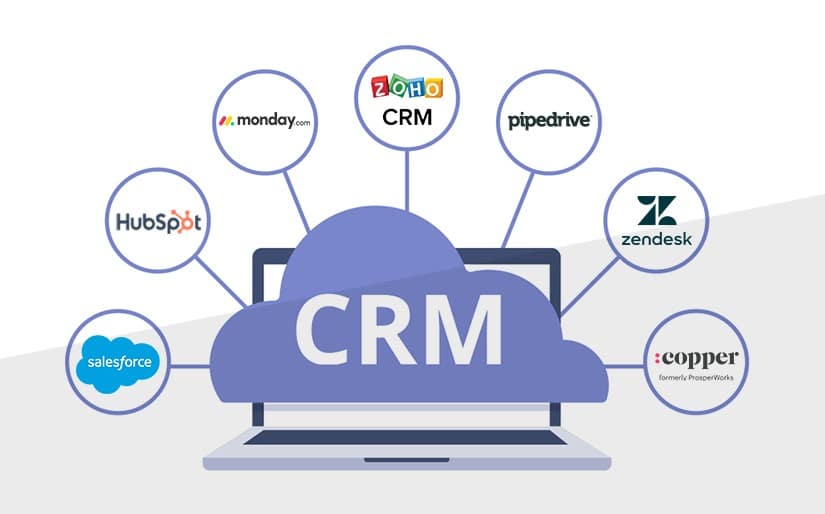Managing customer relationships is essential for businesses of all sizes. With the rise of technology and increasing competition, having an effective CRM (Customer Relationship Management) tool has become crucial. In this article, we will explore the ins and outs of CRM tools, their different types, and top examples in the market. By the end, you’ll be armed with the knowledge to choose the best CRM tool for your organization.
What is CRM?

Customer Relationship Management, or CRM, refers to the strategies, techniques, and tools used by businesses to manage and analyze customer interactions and data throughout the customer lifecycle. The primary goal of CRM is to improve customer relationships, drive sales growth, and retain customers.
Why is CRM Important?
CRM is vital for businesses because it helps:
- Centralize customer data: This allows teams to access customer information quickly and efficiently.
- Improve customer service: CRM tools help track and resolve customer issues effectively, improving overall customer satisfaction.
- Enhance marketing efforts: By analyzing customer data, businesses can tailor marketing strategies to target specific customer segments.
- Increase sales: CRM systems enable sales teams to manage leads, opportunities, and sales pipelines better, ultimately increasing sales conversions.
Types of CRM Tools
There are three primary types of CRM tools, each with its distinct focus and functionalities.
Operational CRM
Operational CRM tools streamline daily business operations related to sales, marketing, and customer service.
- Sales Force Automation: Automates sales processes, such as lead tracking, opportunity management, and sales forecasting.
- Customer Service Management: Tracks and manages customer service interactions, such as support tickets, call logs, and resolution times.
- Marketing Automation: Manages marketing campaigns, including email marketing, social media management, and lead nurturing.
Analytical CRM
Analytical CRM tools focus on analyzing customer data to identify patterns, trends, and opportunities for business growth.
- Customer Data Analysis: Collects and analyzes customer data, such as demographics, purchase history, and preferences, to create customer segments.
- Predictive Analytics: Uses advanced algorithms and machine learning techniques to predict future customer behavior and trends.
Collaborative CRM
Collaborative CRM tools enhance communication and collaboration between teams, departments, and partners to ensure seamless customer experiences.
- Interaction Management: Monitors and records customer interactions across multiple channels, such as phone, email, and social media.
- Channel Management: Streamlines communication between different customer touchpoints, such as sales, marketing, and customer service departments.
Top CRM Tools in 2023
There are numerous CRM tools available in the market, each with its unique features and capabilities. Here are some of the top CRM tools to consider:
Salesforce
Salesforce is the market leader in CRM tools and offers a comprehensive suite of cloud-based services for sales, marketing, customer service, and analytics.
HubSpot
HubSpot is an all-in-one inbound marketing, sales, and customer service platform with a strong focus on user-friendliness and automation.
Zoho CRM
Zoho CRM is a feature-rich and cost-effective CRM solution that caters to small and medium-sized businesses. It offers sales, marketing, and customer service tools, as well as integration with Zoho’s suite of business applications.
Microsoft Dynamics 365
Microsoft Dynamics 365 is an integrated suite of business applications that includes CRM, ERP, and AI-driven analytics. It offers seamless integration with other Microsoft products, such as Office 365 and Power BI.
Freshsales
Freshsales is a user-friendly CRM tool from Freshworks, designed for sales teams looking for a simple yet powerful solution. It offers sales automation, lead scoring, and email tracking, among other features.
Choosing a CRM
Selecting the right CRM tool for your business can be a daunting task. Here are some factors to consider when making your decision:
Identifying Needs
First and foremost, identify your organization’s specific needs and requirements. This includes understanding your sales processes, marketing strategies, customer service workflows, and reporting needs.
Integration Options
Consider the integration capabilities of the CRM tool with your existing software and systems. Seamless integration will ensure a more efficient workflow and better collaboration between teams.
Pricing
CRM tools come with various pricing models, such as subscription-based or one-time fees. Evaluate your budget and choose a CRM tool that offers the features you need within your price range.
Conclusion
CRM tools are essential for businesses to manage customer relationships effectively, streamline operations, and drive growth. By understanding the different types of CRM tools and their features, you can make an informed decision when selecting the best solution for your organization.
FAQs
- What is the primary purpose of a CRM tool?The primary purpose of a CRM tool is to manage and analyze customer interactions and data throughout the customer lifecycle, improving customer relationships, driving sales growth, and retaining customers.
- How do I choose the best CRM tool for my business?To choose the best CRM tool for your business, identify your organization’s specific needs, consider integration options, and evaluate pricing models.
- Can CRM tools help improve marketing efforts?Yes, CRM tools can enhance marketing efforts by analyzing customer data, allowing businesses to tailor marketing strategies to target specific customer segments.